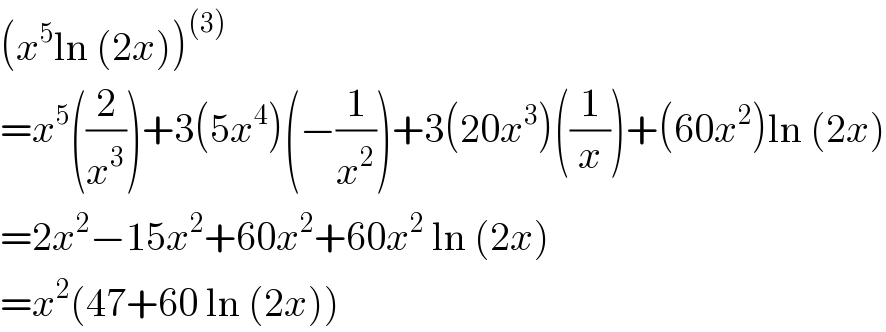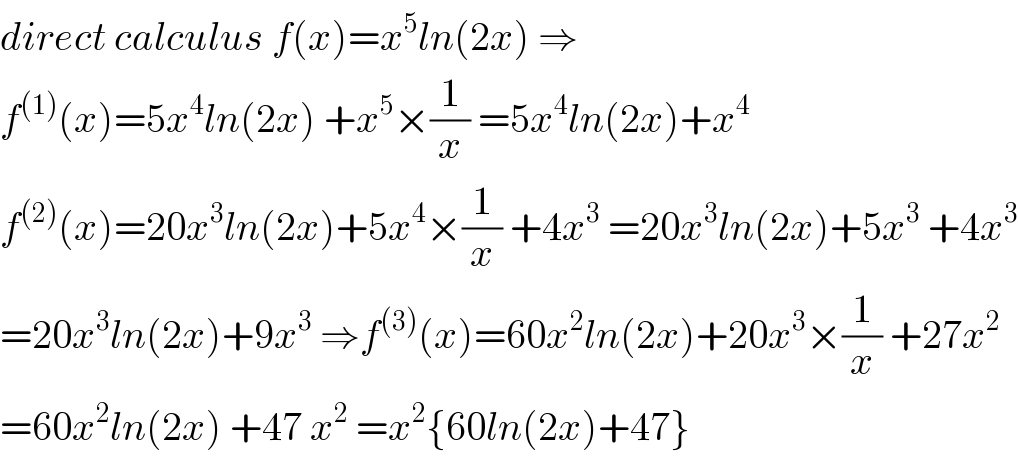
Question and Answers Forum
Question Number 83189 by john santu last updated on 28/Feb/20

Commented by jagoll last updated on 28/Feb/20

Commented by mr W last updated on 28/Feb/20

Commented by mathmax by abdo last updated on 28/Feb/20

Commented by jagoll last updated on 28/Feb/20

Commented by jagoll last updated on 28/Feb/20

Commented by mathmax by abdo last updated on 29/Feb/20

